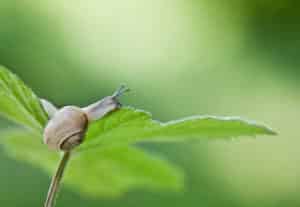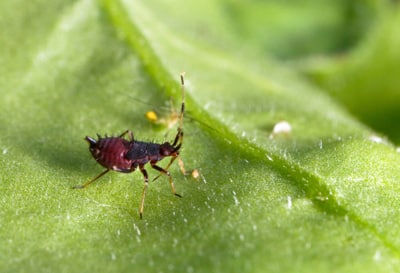Discovering that insects have damaged your garden makes it apparent that you require insect control. Garden insects such as aphids, white-flies and slugs can make a meal of your garden plants, quickly destroying the fruits of your labor. Try the following tricks for getting garden insects under control.
Raise healthy plants
Your first line of defense against garden pests is to grow vigorous plants that fight off harmful insects. Just as we do a better job of warding off viruses when we eat right, plants are more likely to resist pests and diseases when they are given sufficient sunlight and fertilizer.
Water properly
Improper watering leads to many garden insects. Over-watering, for instance, can result in an invasion of fungus gnats, while under-watering can cause an infestation of spider mites. Check plants for water readiness before watering. Also avoid leaving pots sitting in saucers full of water. See more of our suggestions for watering your lawn wisely.
Feed the soil
A healthy soil leads to healthy plants likely to reject pests. Compost provides the soil with key macro- and micro-nutrients and encourages the growth of earthworms. Worms create vital airspace in the soil and leave behind castings that also feed the soil. Compost also suppresses soil-borne diseases, which results in even healthier plants. Amend the soil twice a year with compost. Mix compost into the soil before planting, and use it as mulch on established plantings. Mulching with compost will protect the soil surface, and it will break down and feed the soil over time. To learn how to create your own compost bin, click here.
Identify your pests
If you do get an invasion of garden insects, it’s important that before you try any treatments, you know exactly what pest you have on your plants. When possible, take a photo of the pest, or catch one and place it in a sealed plastic bag. Take the pest to your local farm supply or cooperative extension for identification. Once you identify the pest, you can purchase the correct type of insect control product designed to kill that particular pest.
Try natural pest control
Whenever possible, start by attempting to control an insect invasion with the least toxic methods possible. For instance, douse aphids with a strong spray of water, put out newspapers for slugs and sow bugs to congregate under so you can gather them up, and try organic products like insecticidal soap on white-flies.
Use insecticides judiciously
Pesticides also kill beneficial garden insects, so it’s important to use them wisely. Only spray areas of the plant that are infested, and always follow package directions carefully. More is not better when it comes to insecticides. If a package warns against using an insect control near water because it’s harmful to fish, take the warning seriously.


